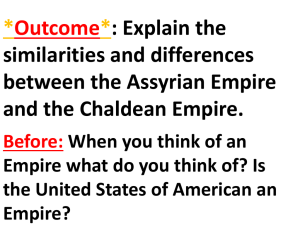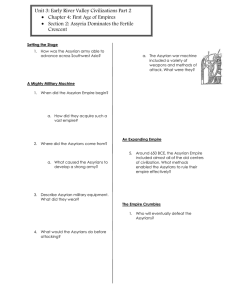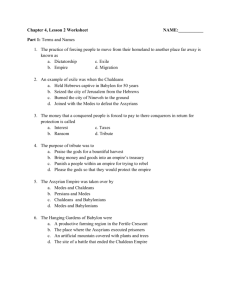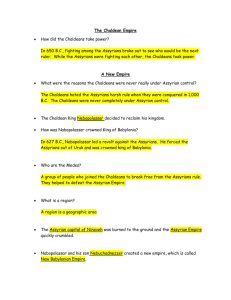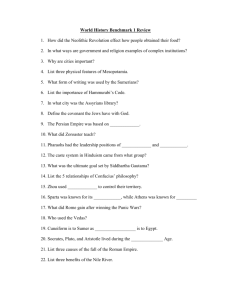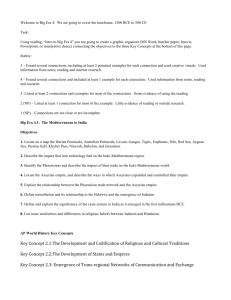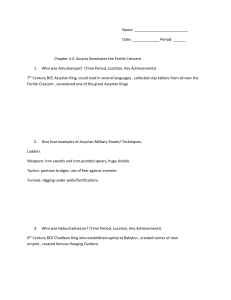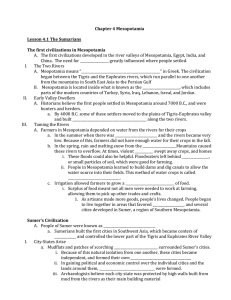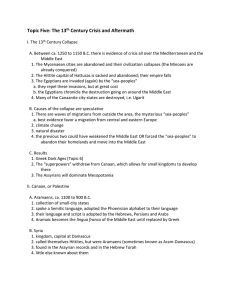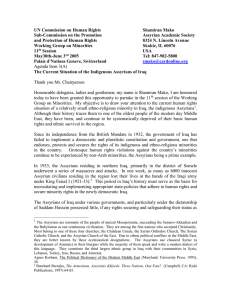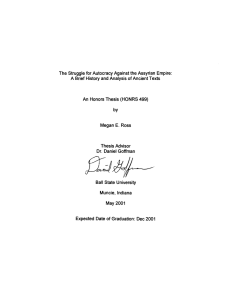Chapter 2 Summary The Ancient Near East: Peoples
advertisement
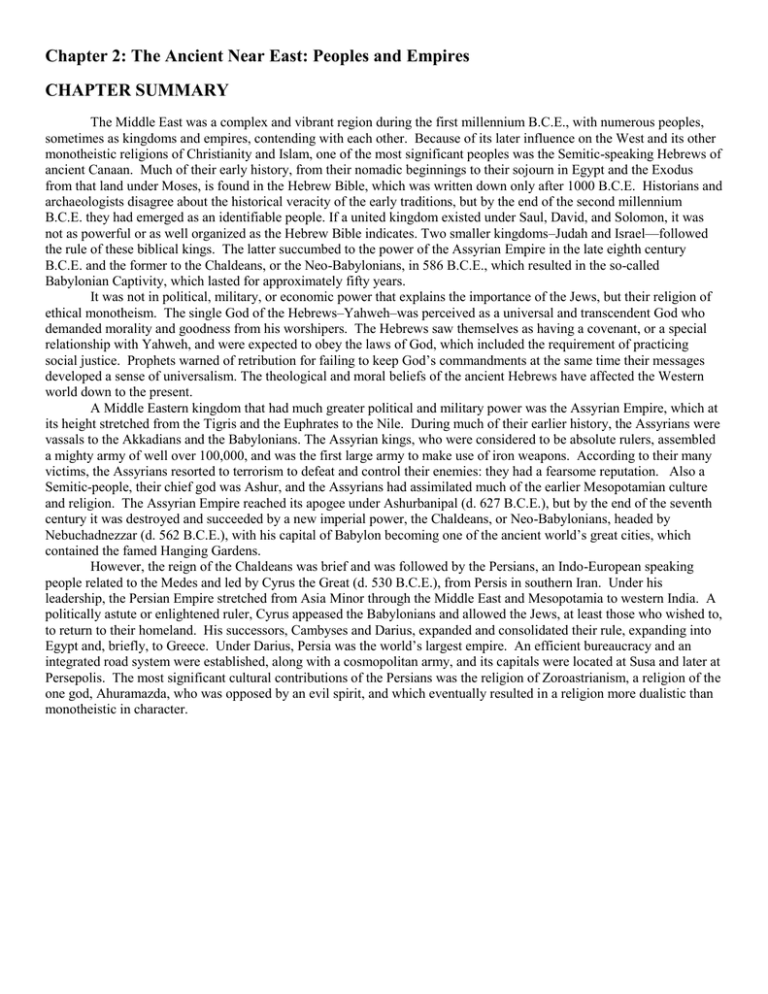
Chapter 2: The Ancient Near East: Peoples and Empires CHAPTER SUMMARY The Middle East was a complex and vibrant region during the first millennium B.C.E., with numerous peoples, sometimes as kingdoms and empires, contending with each other. Because of its later influence on the West and its other monotheistic religions of Christianity and Islam, one of the most significant peoples was the Semitic-speaking Hebrews of ancient Canaan. Much of their early history, from their nomadic beginnings to their sojourn in Egypt and the Exodus from that land under Moses, is found in the Hebrew Bible, which was written down only after 1000 B.C.E. Historians and archaeologists disagree about the historical veracity of the early traditions, but by the end of the second millennium B.C.E. they had emerged as an identifiable people. If a united kingdom existed under Saul, David, and Solomon, it was not as powerful or as well organized as the Hebrew Bible indicates. Two smaller kingdoms–Judah and Israel—followed the rule of these biblical kings. The latter succumbed to the power of the Assyrian Empire in the late eighth century B.C.E. and the former to the Chaldeans, or the Neo-Babylonians, in 586 B.C.E., which resulted in the so-called Babylonian Captivity, which lasted for approximately fifty years. It was not in political, military, or economic power that explains the importance of the Jews, but their religion of ethical monotheism. The single God of the Hebrews–Yahweh–was perceived as a universal and transcendent God who demanded morality and goodness from his worshipers. The Hebrews saw themselves as having a covenant, or a special relationship with Yahweh, and were expected to obey the laws of God, which included the requirement of practicing social justice. Prophets warned of retribution for failing to keep God’s commandments at the same time their messages developed a sense of universalism. The theological and moral beliefs of the ancient Hebrews have affected the Western world down to the present. A Middle Eastern kingdom that had much greater political and military power was the Assyrian Empire, which at its height stretched from the Tigris and the Euphrates to the Nile. During much of their earlier history, the Assyrians were vassals to the Akkadians and the Babylonians. The Assyrian kings, who were considered to be absolute rulers, assembled a mighty army of well over 100,000, and was the first large army to make use of iron weapons. According to their many victims, the Assyrians resorted to terrorism to defeat and control their enemies: they had a fearsome reputation. Also a Semitic-people, their chief god was Ashur, and the Assyrians had assimilated much of the earlier Mesopotamian culture and religion. The Assyrian Empire reached its apogee under Ashurbanipal (d. 627 B.C.E.), but by the end of the seventh century it was destroyed and succeeded by a new imperial power, the Chaldeans, or Neo-Babylonians, headed by Nebuchadnezzar (d. 562 B.C.E.), with his capital of Babylon becoming one of the ancient world’s great cities, which contained the famed Hanging Gardens. However, the reign of the Chaldeans was brief and was followed by the Persians, an Indo-European speaking people related to the Medes and led by Cyrus the Great (d. 530 B.C.E.), from Persis in southern Iran. Under his leadership, the Persian Empire stretched from Asia Minor through the Middle East and Mesopotamia to western India. A politically astute or enlightened ruler, Cyrus appeased the Babylonians and allowed the Jews, at least those who wished to, to return to their homeland. His successors, Cambyses and Darius, expanded and consolidated their rule, expanding into Egypt and, briefly, to Greece. Under Darius, Persia was the world’s largest empire. An efficient bureaucracy and an integrated road system were established, along with a cosmopolitan army, and its capitals were located at Susa and later at Persepolis. The most significant cultural contributions of the Persians was the religion of Zoroastrianism, a religion of the one god, Ahuramazda, who was opposed by an evil spirit, and which eventually resulted in a religion more dualistic than monotheistic in character.
